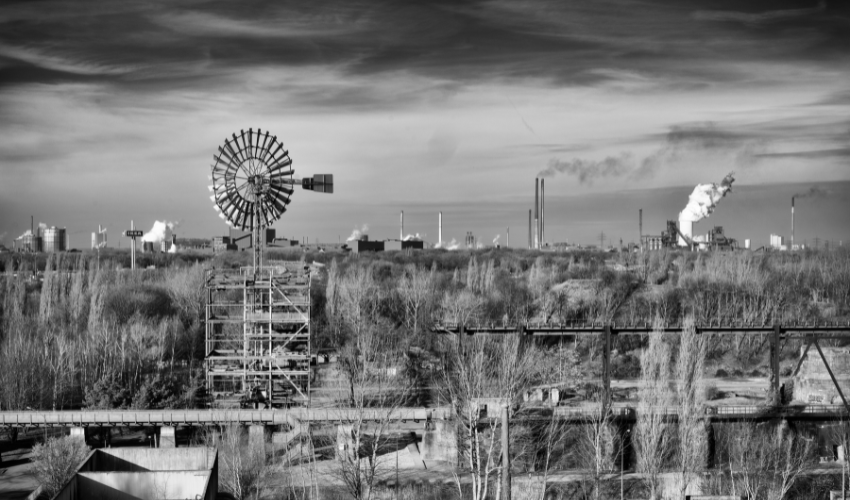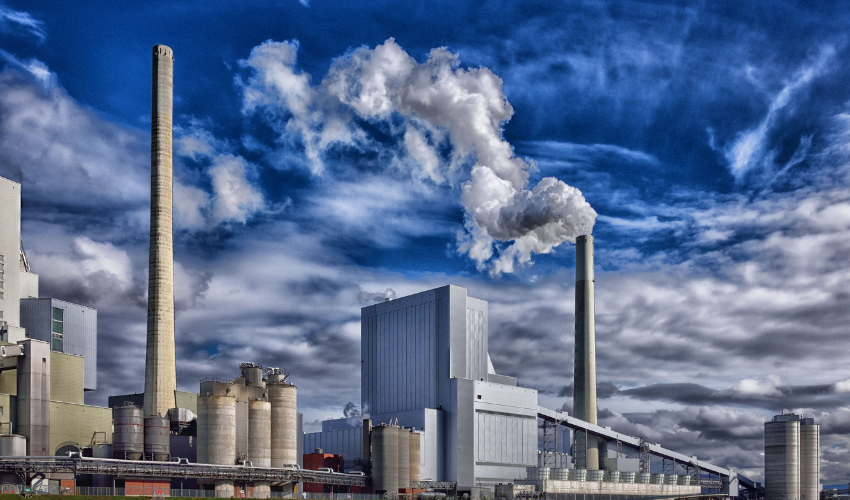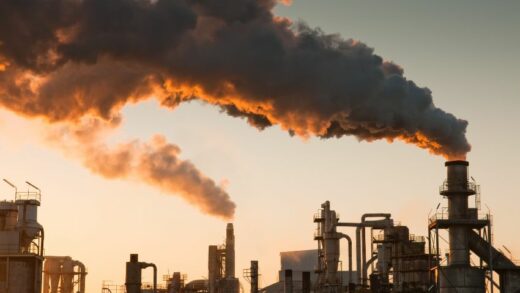The Industrial Revolution took place between the 18th and 19th centuries. It was a period of profound technological and social change that transformed the world. The innovations and advancements that took place during this era marked the transition from manual labor to machine-based manufacturing. It lead to the birth of modern industry. The industrial revolution had a profound impact on the global economy, society, and culture, laying the foundation for the modern world we live in today.
The Origins of The Industrial Revolution

It was born out of the Agricultural Revolution, where advancements in farming practices and new crop rotation methods led to increased food production, which allowed for population growth. With the growth of the population, people began to move into cities. This led to increased demand for goods and services. This created a demand for more efficient methods of manufacturing, leading to the development of new technologies and machinery.
Coal and iron played a crucial role in the development of the industrial revolution. The availability of coal and iron allowed for the development of new technologies such as the steam engine, which powered machines and allowed for mass production. The factory system was born out of this, which allowed for mass production and increased efficiency, leading to lower costs and increased productivity.
The Inventions and Innovations of The Industrial Revolution
The industrial revolution was characterized by significant technological advancements that transformed manufacturing, transportation, and communication. Some of the most significant inventions of the industrial revolution included the spinning jenny and power loom, which revolutionized textile production, leading to the growth of the textile industry. The cotton gin allowed for faster processing of cotton, leading to increased production and the growth of the cotton industry.
The steam engine was one of the most significant inventions of the industrial revolution. It revolutionized transportation and allowed for the development of steam-powered machinery, such as locomotives and steam-powered boats. The telegraph and telephone revolutionized communication, connecting people across vast distances and improving business and industry.
The Impact of The Industrial Revolution on Society

The industrial revolution led to significant social changes, including urbanization, the growth of the middle class, and changes in family structure. The rise of factories led to a significant increase in urbanization as people moved from rural areas to cities to work in factories. This led to the growth of cities and the development of new urban lifestyles.
It also led to the rise of the middle class, as new opportunities in manufacturing and commerce led to increased wealth and social mobility. This led to changes in family structure, as the nuclear family became more common, and women and children began to enter the workforce.
The formation of labor unions allowed workers to demand better pay, working conditions, and job security. This led to significant improvements in the lives of workers, although many were still subjected to harsh working conditions and long hours.
The Legacy of The Industrial Revolution
The legacy of the industrial revolution includes significant technological advancements, economic growth, globalization, the rise of capitalism, and environmental impact.It led to significant improvements in technology, allowing for faster and more efficient production methods. This, in turn, led to significant economic growth and the development of new industries and markets.
It also led to the rise of capitalism, as entrepreneurs and investors began to invest in new technologies and industries. This led to significant wealth creation, although it also led to significant income inequality and exploitation of workers.
The industrial revolution had significant environmental impacts, including increased pollution, deforestation, and climate change. While it led to significant progress in many areas, it also highlighted the need to address environmental concerns and strive for more sustainable forms of development.
Bullet Points
Impact on Society and Culture:
- It led to the emergence of new social classes, including the working class, middle class, and capitalist class.
- Factory work and wage labor became the norm, leading to the rise of industrial cities and urbanization.
- Women began to enter the workforce, although they were often paid less and faced discrimination.
- The education system expanded, and literacy rates increased as a result of the need for skilled workers.
- The development of leisure and entertainment industries, such as sports, theater, and cinema, provided new forms of entertainment and socializing.
FAQs
What caused the Industrial Revolution?
It was caused by a combination of factors, including technological innovations, changes in economic and political systems, and social and cultural transformations.
What were the key inventions of the Industrial Revolution?
The key inventions included the steam engine, spinning jenny, power loom, cotton gin, and advances in iron and steel production.
How did the Industrial Revolution impact the global economy?
It led to the growth of international trade, the emergence of industrial capitalism, urbanization and the development of infrastructure.
What were some of the negative consequences of the Industrial Revolution?
Environmental degradation, working conditions and exploitation, inequality and class struggles, and colonialism and imperialism.
What is the legacy of the Industrial Revolution?
The legacy includes technological progress and innovation, globalization and interconnectedness, the rise of consumer culture, and the evolution of political ideologies.
Conclusion
The Industrial Revolution was a turning point in human history that had far-reaching impacts on the global economy, society, and culture. It marked the beginning of modern industry and laid the foundation for the world we live in today. While it brought about numerous positive changes, it also had negative consequences, including environmental degradation, social and economic inequality, and exploitation of labor. Despite these challenges, the industrial revolution remains a significant and influential period in history that continues to shape our world today.






















